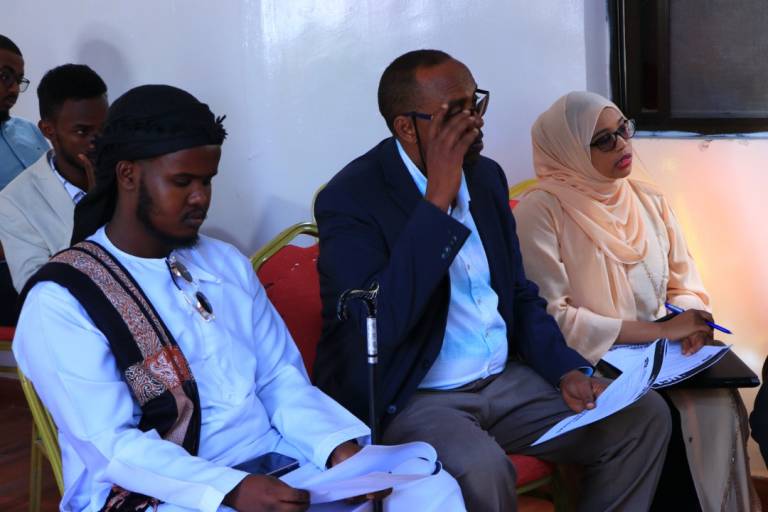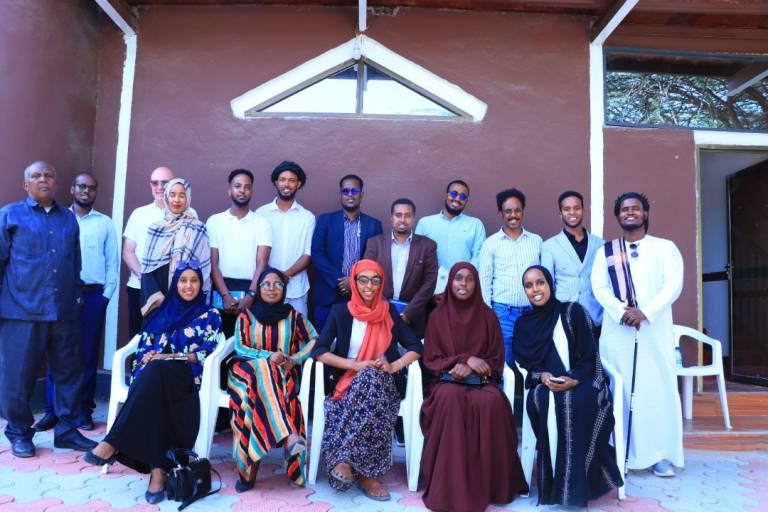Connecting Digital Inequalities and Rural Poverty: The Case of Somaliland
Acknowledging the dynamics and impacts of space, place and power when explaining disparities in internet and communication technology.

1 September 2021
Internet and Communication Technology is acknowledged to increase both the productivity and wellbeing of marginalised communities. As such, access to digital communication and technology is identified as a measure of equality in the Sustainable Development Goals (SDG 9). Yet critical research on the concept of digital inequality tells of the causal relationship between categorical inequalities and their connection to the access and distribution of resources. In the case of Somaliland, the extent of categorical inequalities is also reflected in the context of geography, space, and place, as the various patterns of inequality and levels of social, economic, and political participation are indicative of their urban and rural conceptions, as well as the local dimensions of class, clan, and gender.
This project, with partner organisation The RedSea Cultural Foundation, conducted baseline data collection through interviews and workshops in Hargeysa, Somaliland. The objective of the interviews and the workshops was to explore the extent to which access to digital resources impact the categorical characteristics of inequality. Using a methodology that focused on participatory interaction, with workshop participants the project discussed and reflected on how rural populations in Somaliland access digitalisation, as a potential tool for connectivity, as well as the potential benefits and challenges such access can deliver for their socio-economic and political participation. Delivering a two-day participatory research workshop also enabled the project to explore how the digital divide in Somaliland, through its relation to space, place, and power, as measures of connectivity, impacts the daily lives of those living in rural areas outside of the capital Hargeysa.
Prior to the workshops, RCF also conducted a small baseline data collection with 38 interviews. The interviews were carried out with respondents, across varying age and gender bands, living in the rural outskirts of Hargeysa. Findings showed a greater connection between access to digital resources, such as ICT, and challenges of inequality. For instance, it was found that members of rural communities face challenges regarding access to education and other resources such as healthcare facilities as well as financial services. The project also found that there is a gender divide as many women reported that they were unaware that they can access the internet on their mobiles. The workshop allowed for different groups and communities from Somaliland, both rural and urban residents, to engage and discuss a topic that impacts their daily lives.
Another immediate outcome of the project is a journal article, written with research partner RCF. The article will highlight findings and outline a critical reflection of the relationship between ICT and poverty reduction. The project team noted that: "Conducting research on this topic and in Somaliland is rather unique and we feel that the baseline data we collected along with the participatory workshops, will allow us to add to the scarce literature. This is great progress and a great impact!" Another key impact arising was that, through the funding and relationship with RCF, the project also enabled engagement with young researchers from Somaliland as well as engage with the wider public regarding the challenges of digital inequality.

 Close
Close


